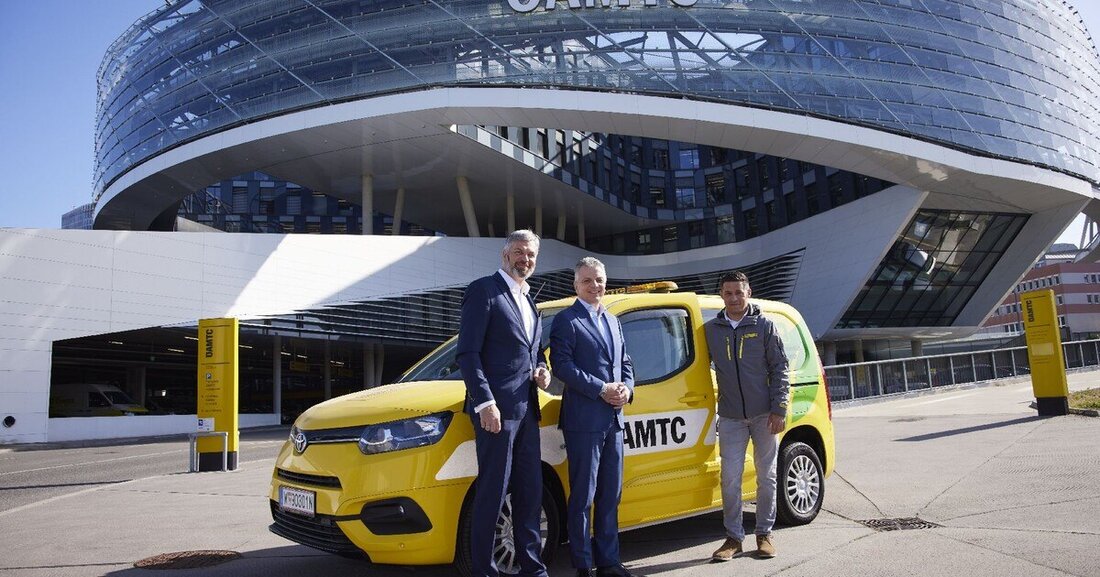No roadside assistance without data access
The ÖAMTC needs free access to the vehicle data in order to continue to provide roadside assistance.

No roadside assistance without data access
“The EU must act urgently so that consumers don’t have to pay more again!” demands ÖAMTC director Oliver Schmerold. "Firstly, there is still no consumer-friendly regulation for data from cars. On the contrary: the car manufacturers have more control over this data than ever before. Secondly, a current ECJ ruling is consistently ignored by the manufacturers. In order to increase the pressure on those responsible, we have launched the largest member campaign in the club's history," summarizes Schmerold.
During their operations, the Yellow Angels are increasingly confronted with car manufacturers gradually restricting data access. Even the ability to read error codes using on-board diagnostics as a first step towards successful breakdown assistance is made more difficult. The ÖAMTC is particularly critical of the handling of a current ruling by the European Court of Justice. "The judgment of October 5, 2023 prohibits manufacturers from restricting free access during maintenance and repair work - which, however, is deliberately ignored by the manufacturers. They have even persuaded the EU Commission to now work on a proposal to reverse the meaning of the judgment by changing the type approval. The illegal practice should be legalized - that is really bold and unique in the history of EU legislation," explains Bernhard Wiesinger, head the ÖAMTC interest group. “We therefore demand, together with our members, immediate implementation of this judgment and free access to the data!”
Across Austria, the ÖAMTC provides over 1.3 million mobile and stationary roadside assistance services per year. This is also possible if data access is restricted - but only via an electronic access key, which must be requested from the manufacturer for a fee. Harald Feichtinger from the ÖAMTC roadside assistance explains: "The access key must be requested online. If there is poor or no network coverage, this does not work and we are forced to carry out a tow. This applies to everyday breakdowns, such as replacing a defective battery, lifting the start lock after refilling an empty AdBlue tank or pumping out fuel that has been filled up incorrectly. This costs us and the member completely unnecessary time and nerves." Bernhard Wiesinger adds: "Ultimately, it also costs money - on the one hand because the costs for a tow are higher, and on the other hand because the manufacturers naturally have to pay for the issue of access keys. And once they have established their data monopoly, it certainly doesn't get any cheaper for consumers. Not only when it comes to roadside assistance, but also if, for example, they have repairs done at an independent workshop."
The ÖAMTC is currently providing information about the harsh consequences for consumers at every breakdown assistance and at all bases. "Our members have the opportunity to express their point of view in a letter to the President of the EU Commission. The ÖAMTC ensures that the letters reach Ursula von der Leyen. We are proud that the approximately 4,000 ÖAMTC employees throughout Austria are behind this campaign and are convinced that this joint campaign with our members will not go unheard," explains Oliver Schmerold. The aim of the mobility club is to implement both the sector-specific regulation and the ECJ ruling in the interests of consumers. The Data Act, which will generally regulate the handling of data collected by devices from September 2025, is not sufficient for the automotive sector. Experts are therefore calling for so-called “sector-specific regulation” for cars. “So that consumers don’t end up paying more because politicians bow to pressure from the strong auto industry,” Bernhard Wiesinger concludes.

 Suche
Suche
 Mein Konto
Mein Konto